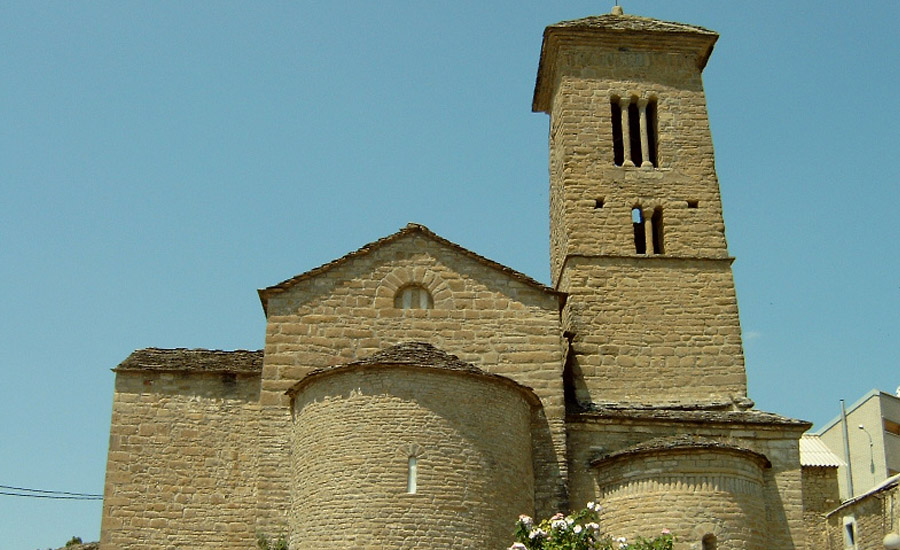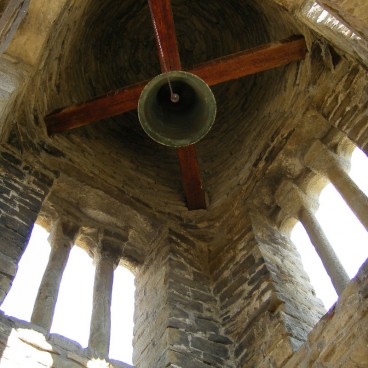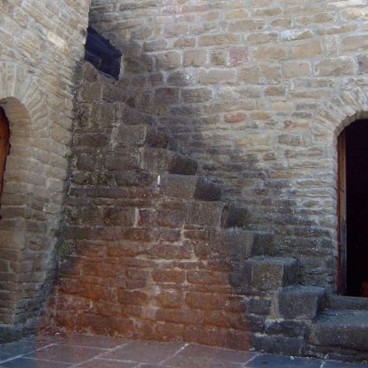Saint Peter’ s, Lasieso – San Pedro de Lasieso

LOCATION
- Locality: Lasieso
- Where: Village centre
- How to get there: From the N-330, Sabiñánigo to Huesca, take the turn-off at Hostal de Ipiés. This turn-off is signposted, and the road runs along the left bank of the River Gállego, following the course of the river.
- Signposting: Yes
- Spatial orientation: Village centre
The small village of Lasieso lies in a flat area close to the place where the River Guarga meets the River Gállego.
The village has a lot of very interesting architecture: elegant chimneys, an 11th Century Romanesque church with a medieval necropolis close by and tombs carved into the rock.
Saint Peter’s is an exceptionally beautiful building. It is formed by two churches side by side, one bigger than the other. Both churches have rectangular naves and end in a semi-circular apse. The naves are joined by a simple semi-circular archway and are lit by two central windows situated in the apses that are semi-circular and double-splayed.
The smaller church has a lovely bell tower, built over the nave. The higher part of the tower is decorated with a frieze of columns, and third and second floors have windows of three and two small semi-circular arches, respectively.
The larger church is what is left of Saint Peter’s Monastery (Monasterio de San Pedro), which was founded by Count Sancho Ramírez, half-brother of King Sancho Ramírez and the illegitimate son of Ramiro I of Aragon. The sarcophagus where he was interred, in this church, is kept at Jaca’s Diocesan Museum (Museo Diocesano de Jaca).
The Church has been declared a Property of Cultural Interest (and a Historic/Artistic Monument since 1982).

